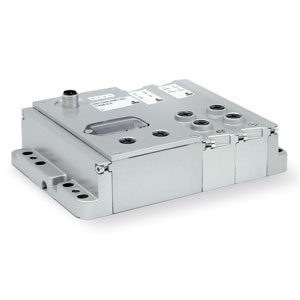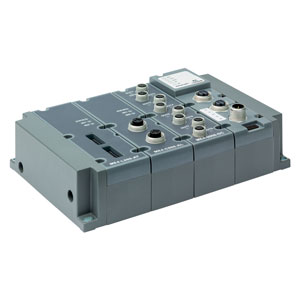Multi-serial modules
The serial interface module is a fundamental technological component in industrial automation, providing an effective solution for communication between devices and control systems.
Added to Your Shopping Cart
Advantages of Serial Interface Modules
Serial interface modules offer numerous advantages that make them essential for the integration and optimisation of industrial automation systems. These modules facilitate communication between heterogeneous devices and systems, ensuring efficient and coordinated operation of the entire automated infrastructure.
- Versatile Integration: Serial interface modules support a wide range of communication protocols, making them compatible with a wide range of devices and systems. This versatility allows for the easy integration of new components into existing plants, promoting technological upgrades.
- Reduction of Wiring Complexity: Using serial interface modules significantly reduces wiring complexity within industrial facilities. This not only simplifies installation and maintenance but also reduces the risk of wiring errors and associated faults.
- Reliability and Security of Communication: Designed to operate in harsh industrial environments, these modules provide reliable and secure data transmission. They are equipped with mechanisms for protection against electromagnetic interference and error detection systems, ensuring operational continuity and data security.
- Flexibility of Configuration: Serial interface modules can be easily configured via dedicated software, allowing users to quickly adapt settings to the system's specific needs. This flexibility enables efficient resource management and optimisation of system performance.
- System Scalability: Due to their modularity, these devices allow for easy system expansion.
- Cost Efficiency: The adoption of serial interface modules reduces costs associated with complex wiring and maintenance. Additionally, the ability to integrate new devices without replacing existing ones represents significant long-term economic savings.
Features
- Conversion Function: Serial interface modules convert digital signals from one format to another, ensuring that the message sent by one device is understandable to the receiving device, despite differences in communication formats.
- Compatibility and Connectivity: These modules support a wide range of communication standards, making them compatible with a variety of industrial equipment. Their ability to support multiple protocols makes them essential for integrating older systems with new technologies, facilitating the upgrade of existing infrastructures.
- Configuration and Management: Serial interface modules have their own configuration file. This file enables communication with the interface modules, giving users the ability to set specific parameters, monitor the module's status, and diagnose communication issues quickly and intuitively.
- Minimisation of Interference: Designed to operate in complex industrial environments, these modules are often equipped with advanced mechanisms to minimise electrical interference and ensure reliable and secure data transmission.
- Improved Efficiency and Space Saving: The adoption of serial interface modules reduces the need for complex wiring and numerous specific converters, simplifying system architecture and saving physical space within the facilities.
Definition
Serial interface modules are crucial components in industrial automation, facilitating communication between various control and automation devices within an integrated system. These modules act as bridges that translate and transmit data between devices using different communication protocols, such as Ethernet/IP, CANOpen, Profinet.
Practical Applications of Serial Interface Modules
Serial interface modules are used in various sectors such as automated production, process control, and robotics. Their versatility makes them suitable for applications requiring precision and reliability.
Evolution of Serial Interface Modules
With continuous technological innovation, serial interface modules are constantly evolving. In particular, integration with new digital technologies such as Artificial Intelligence, Machine Learning, and the Industrial Internet of Things (IIoT) opens new frontiers for the efficiency and flexibility of these devices within industrial processes.
Product Availability by Store Location
Hours
 Estonia
Estonia




